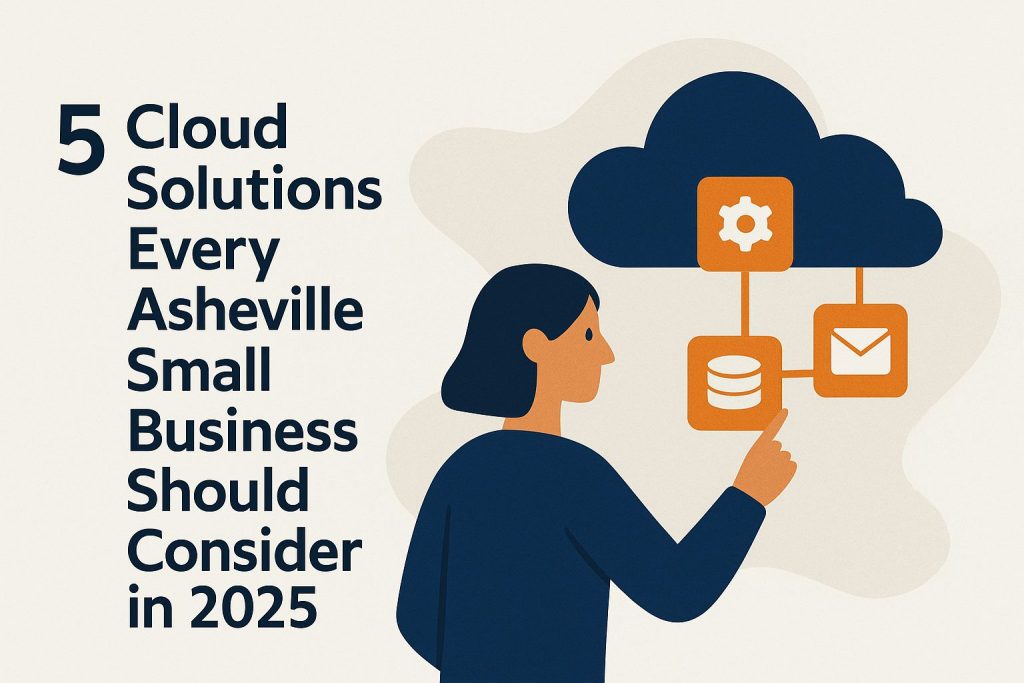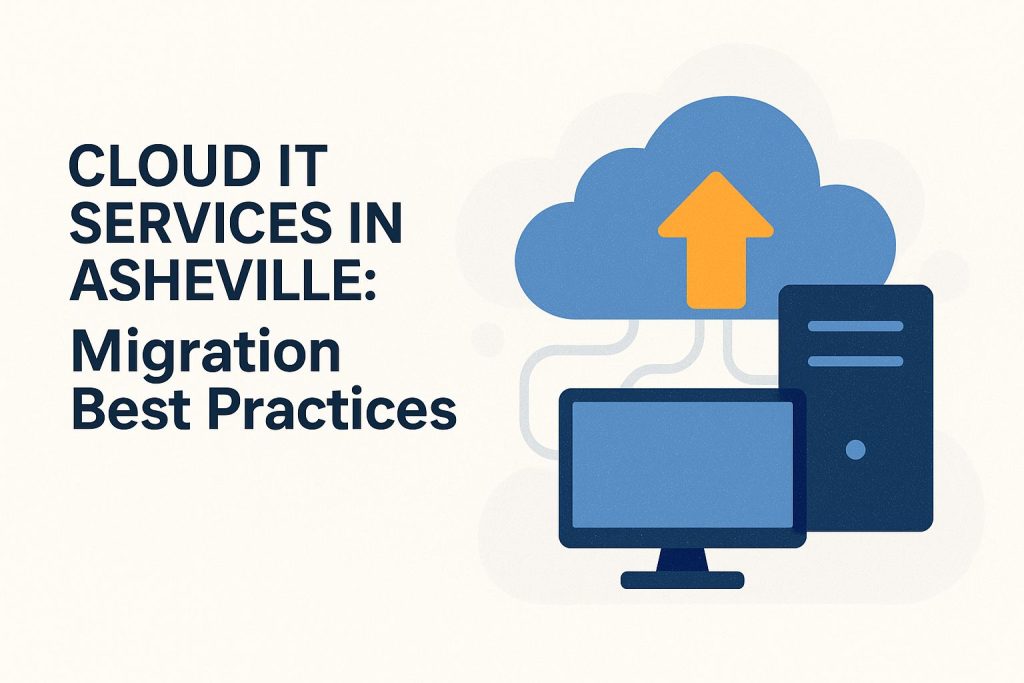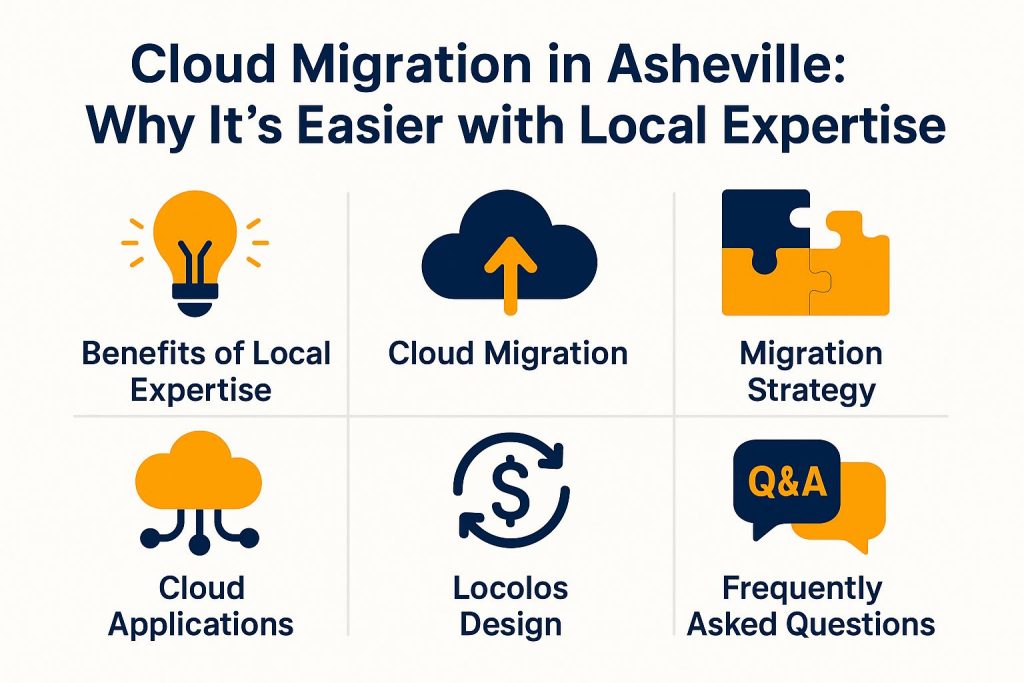Why Cloud Backup in Asheville Is Essential for Small Firms
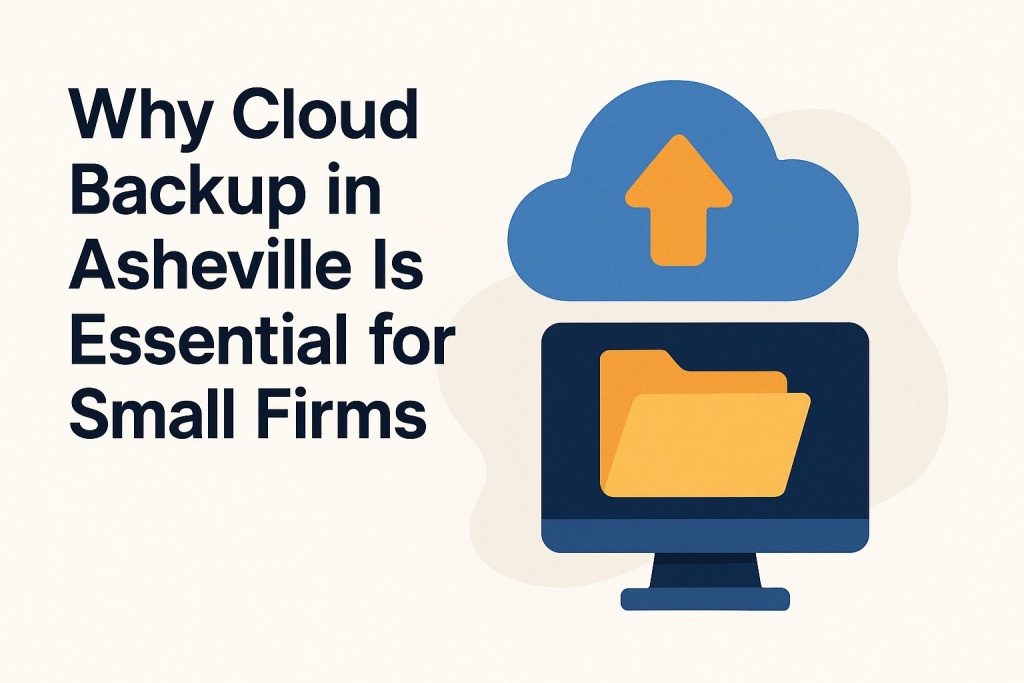
Data breaches and disasters are frequent. Small businesses in Asheville must keep their information safe. In a competitive landscape, cloud backup solutions are essential. They offer better data security and cost-effectiveness. This article explains why cloud backup is important for Asheville businesses.
Importance for Small Firms
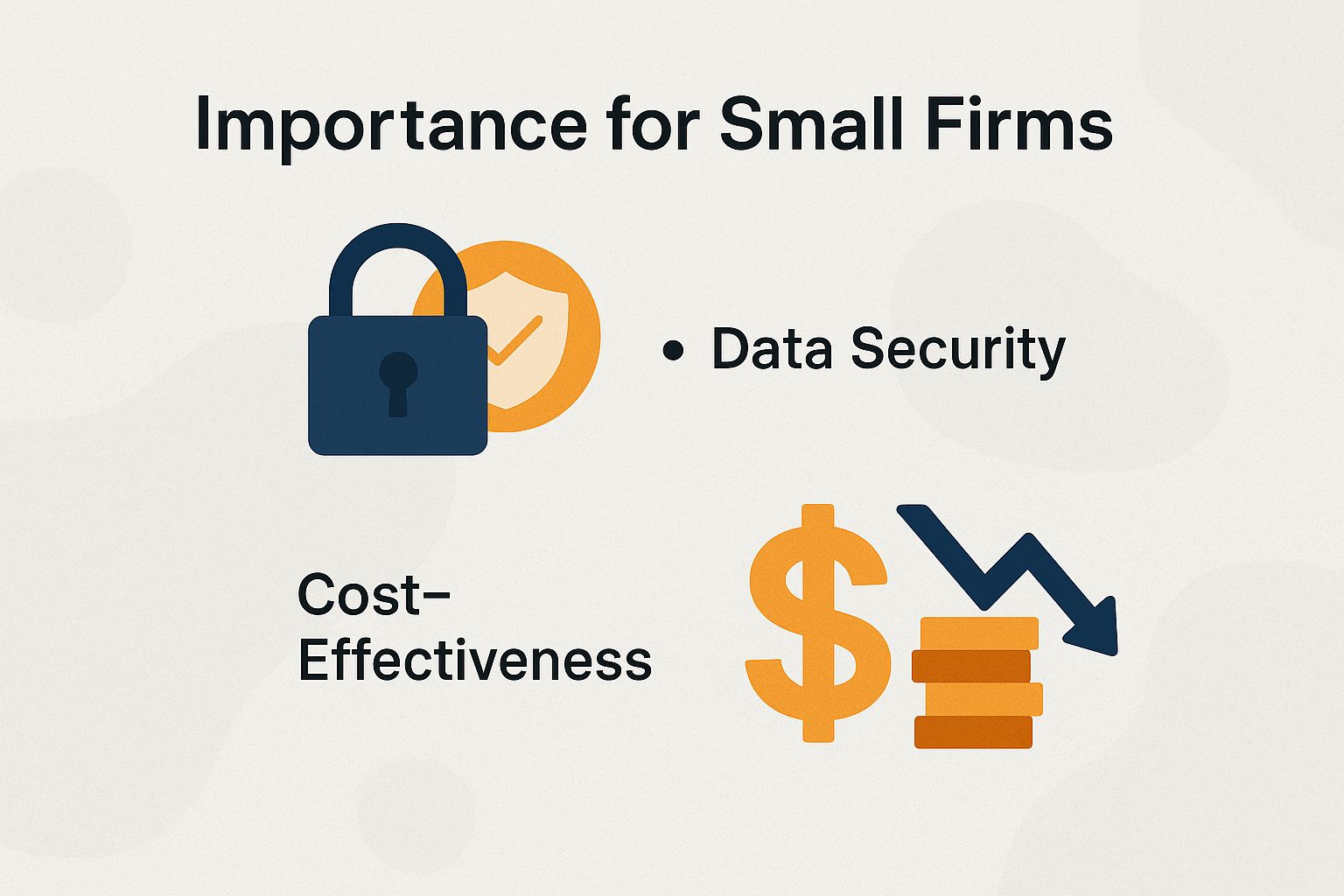
For small firms, robust cloud backup solutions safeguard client data, ensure business continuity, and prevent data loss. Additionally, understanding the various steps involved in cloud migration can further enhance these solutions, providing a seamless transition and integration.
Data Security
Data security is vital. Data security protocols in cloud backup systems protect sensitive information from unauthorized access, cyber threats, and ensure data integrity. Effective data security protocols within cloud backup systems play a crucial role in safeguarding sensitive information from unauthorized access, cyber threats, and ensuring data integrity. To enhance a data security strategy, it is advisable to implement AES-256 encryption for files. This robust encryption method ensures that, even if data is intercepted, it remains unreadable.
Use tools like Backblaze for regular backups. They offer automatic storage and version control. Additionally, enabling multi-factor authentication (MFA) across all accounts is a fundamental step that can significantly reduce the risk of unauthorized access and improve data governance.
Statistics show that 60% of small businesses close within six months after a cyber attack. This highlights the importance of effective risk management, especially when considering the transition to cloud environments. For those undergoing this transition, our cloud migration checklist offers essential guidance.
Cost-Effectiveness
Cloud backup is a cost-effective option for small firms. It reduces operational costs. Cloud backup presents small firms with a financially viable alternative to traditional data storage, significantly reducing operational costs and enhancing IT budget efficiency.
For example, Acronis offers plans starting at $69 per year, providing robust security features tailored for small businesses, while Carbonite provides options at $24 per month, facilitating easy scalability and cloud migration without requiring a long-term commitment.
These cloud solutions frequently come equipped with features such as automated backups, data recovery, and file synchronization, which are often absent in traditional methods.
By eliminating the need for physical hardware, businesses can save up to 50% in storage costs and improve operational efficiency.
Implementing cloud backups ensures access to flexible pricing that matches business growth.
Local Considerations in Asheville
Businesses in Asheville must consider local regulations and geographic factors when selecting cloud backup solutions. Understanding local compliance requirements is essential; for example, healthcare firms must adhere to HIPAA regulations to ensure that patient data is securely backed up, readily retrievable, and compliant with data protection standards.
Similarly, financial institutions must comply with pertinent local banking regulations. Choosing local providers can improve service reliability and support; for example, Asheville-based data centers can enhance service reliability, support, and network reliability, enabling businesses to receive quicker responses to issues and more personalized service.
This local focus improves data sovereignty and operational resilience, meeting the region’s unique needs. To drive growth effectively in Asheville, it’s crucial to integrate strategic IT planning into your business model. Learn more about how strategic IT planning can enhance your business growth in Asheville.
Compliance and Legal Requirements
Businesses must comply with regulations when using cloud backup solutions, ensuring both data protection and adherence to legal requirements, such as IT compliance and cybersecurity standards. Key regulations such as GDPR and CCPA establish stringent guidelines for data handling and consumer privacy.
Failure to comply with these regulations can result in severe penalties, including fines of up to 4% of annual revenue and significant business risks.
To facilitate compliance, tools like Vanta and Drata help businesses monitor compliance automatically to ensure that processes align with legal standards and maintain data integrity. Additionally, implementing strict access controls, conducting regular audits of backup processes, and ensuring user access control can significantly reduce risks.
By adopting these proactive measures, businesses can effectively safeguard sensitive data while avoiding costly compliance issues.
Choosing the Right Provider: A Guide for Cloud Computing
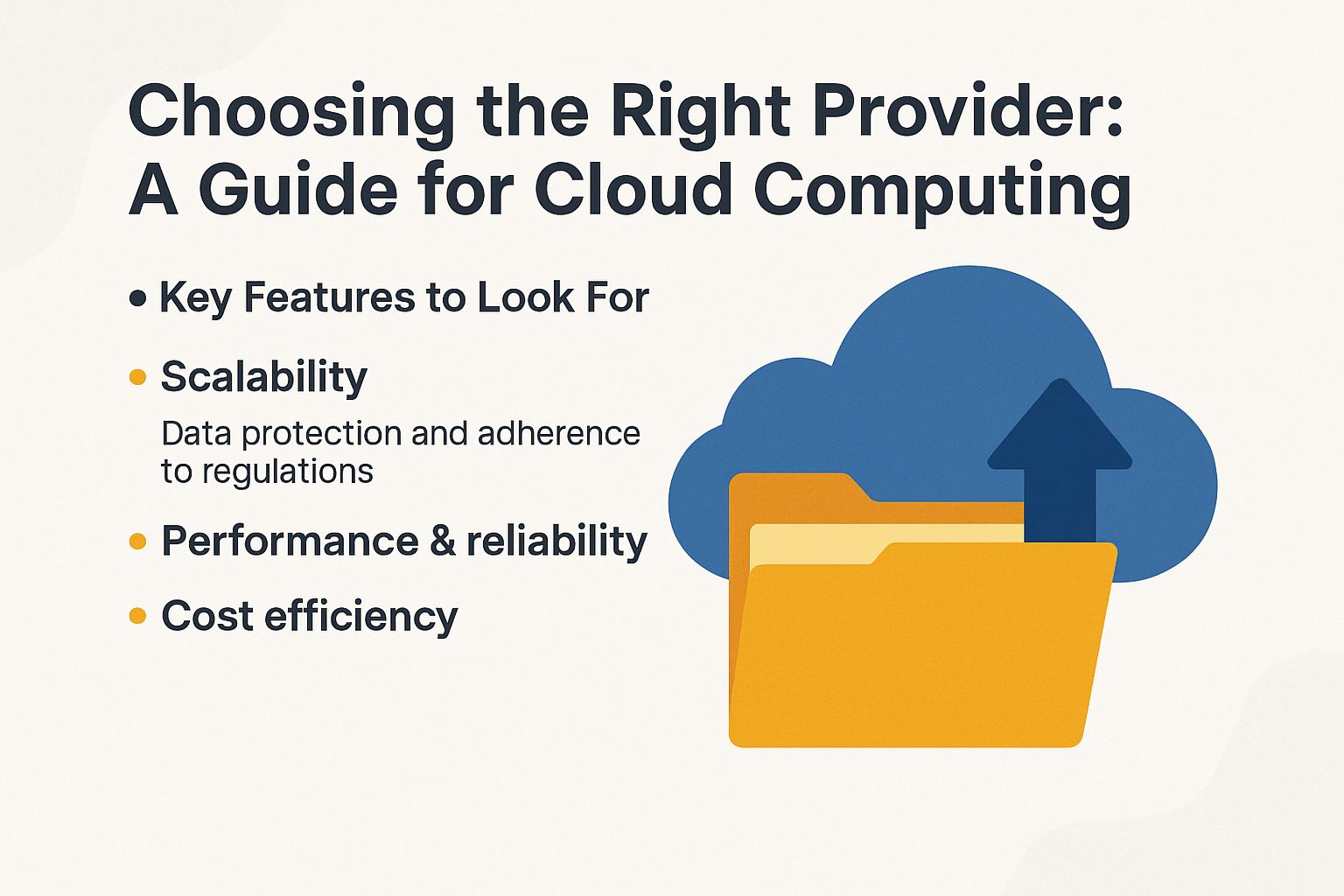
Choosing a cloud backup provider is crucial. It ensures data security and meets the business’s specific needs, including cloud applications.
Key Features to Look For
Small firms should focus on features that improve data security, access, recovery, and backup strategy when evaluating cloud solutions.
Consider these key features: scalability, cloud solutions, and technical support.
- Automated backups, which safeguard data regularly without the need for manual intervention, are essential for maintaining backup frequency.
- Data encryption for enhanced security during both storage and transmission, ensuring robust network security.
- Streamlined data retrieval processes to minimize downtime, critical for effective restore time objective.
Tools such as Acronis offer comprehensive functionalities, including user-friendly interfaces, file recovery, and data management that simplify recovery processes.
It is essential to define recovery time objectives (RTO) and recovery point objectives (RPO). Aim for an RTO of under 2 hours and an RPO of 24 hours. This ensures business continuity during disruptions.
Frequently Asked Questions
Why is cloud backup essential for small firms in Asheville?
Cloud backup securely stores important data. It offers remote access and helps manage digital assets for small firms in Asheville.
How does cloud backup benefit small firms in Asheville?
Cloud backup is a cost-effective way for small firms in Asheville to protect data. It supports efficient technology adoption and infrastructure as a service. It eliminates the need for expensive hardware and IT infrastructure, making it accessible for even the smallest businesses.
What are the security measures in place for cloud backup in Asheville?
Providers in Asheville use many security layers to protect your data, including encryption, firewalls, audits, and redundancy. This ensures that your data is safe from cyber threats and unauthorized access.
Can small firms in Asheville scale their cloud backup as their business grows?
Cloud backup services in Asheville offer flexible storage. Small firms can easily scale as their business grows, improving planning. This eliminates the need for costly hardware upgrades and provides a more cost-effective solution.
What happens to my data if there is a natural disaster in Asheville?
If a natural disaster occurs, your data remains safe in the cloud. Cloud backup providers in Asheville have multiple data centers in different locations, ensuring that your data is always accessible and protected, supporting disaster recovery plans even in the face of a disaster.
Is it easy to set up and use cloud backup for small firms in Asheville?
Yes, most providers in Asheville offer user-friendly software and support. They help small firms set up and use their services. This makes it accessible for businesses without a dedicated IT team or technical knowledge.
